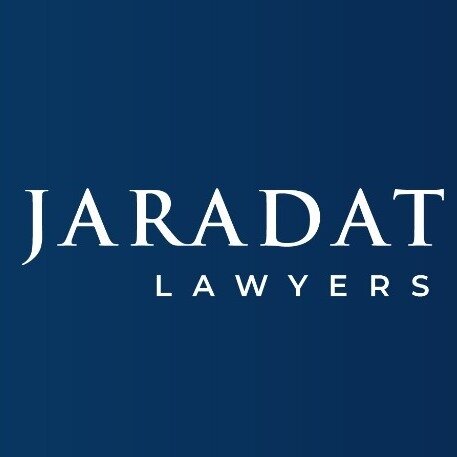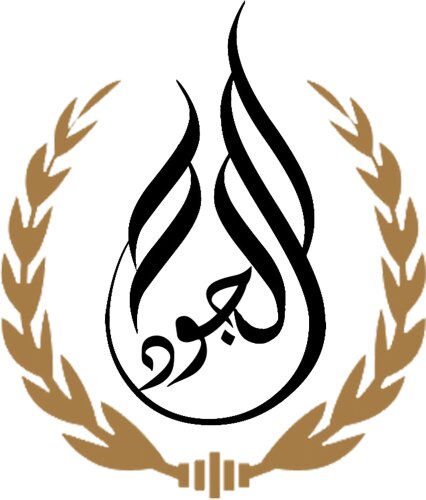Best Sanctions & Export Controls Lawyers in Hashemite Kingdom of Jordan
Share your needs with us, get contacted by law firms.
Free. Takes 2 min.
Or refine your search by selecting a city:
List of the best lawyers in Hashemite Kingdom of Jordan

About Sanctions & Export Controls Law in Hashemite Kingdom of Jordan
Sanctions and export controls law in the Hashemite Kingdom of Jordan governs how individuals, businesses, and organizations may engage in the international trade of goods, technologies, and services. These regulations are designed to align with Jordan’s obligations under United Nations sanctions regimes and to maintain national and regional security. Jordanian authorities monitor the transfer of sensitive goods, dual-use items, and financial transactions that could potentially support prohibited activities, such as terrorism or weapons proliferation. The legal framework establishes compliance requirements and enforcement mechanisms to ensure that Jordan’s trade follows both domestic and international mandates regarding prohibited entities, countries, goods, and services.
Why You May Need a Lawyer
Sanctions and export controls are complex, and failure to comply can result in severe penalties, including hefty fines, restriction of business activities, and criminal liability. You may require legal assistance in a variety of situations, such as:
- Understanding whether your business dealings or exports fall under Jordanian or international sanctions regulations
- Responding to government investigations or audits related to sanctions violations
- Obtaining licenses or permits for the export or import of controlled goods and technology
- Navigating contract disputes arising from sanctions-related disruptions
- Advising on due diligence when engaging with foreign partners or new markets
- Ensuring compliance with updates in sanctions lists or export control regulations
- Defending against enforcement actions or allegations of violations
A lawyer with knowledge of sanctions and export controls can provide guidance, help mitigate risks, and represent you in any proceedings with regulatory authorities.
Local Laws Overview
Jordanian law addresses sanctions and export controls through several legal instruments and authorities:
- The implementation of United Nations Security Council sanctions is overseen by the Central Bank of Jordan, Ministry of Industry, Trade and Supply, and other relevant bodies.
- Export and import of strategic or dual-use goods may require pre-approval or licensing from government agencies.
- Specific restrictions apply to dealings with countries, entities, organizations, or individuals that are under international or Jordanian sanctions, including limitations on trade, investment, transport, and financial transactions.
- Businesses must conduct thorough due diligence processes to ensure they are not violating sanctions or inadvertently facilitating prohibited transactions.
- Violations of sanctions or export control regulations can be prosecuted under Jordanian criminal law and may also lead to administrative penalties and blacklisting.
- The Anti-Money Laundering and Counter-Terrorist Financing Law also intersects with sanctions, prohibiting transactions linked to terrorism or proliferation of weapons of mass destruction.
It is vital for companies and individuals to keep updated with regulatory changes and to regularly consult official sanctions lists published by Jordanian authorities and international organizations.
Frequently Asked Questions
What are sanctions and export controls?
Sanctions are legal restrictions imposed by governments or international organizations to influence states, entities, or individuals involved in prohibited activities. Export controls are regulations that limit or monitor the export of sensitive goods, technologies, or services to protect security and comply with international agreements.
Who enforces sanctions and export controls in Jordan?
Enforcement is primarily the responsibility of government agencies such as the Central Bank of Jordan, Ministry of Industry, Trade and Supply, and specific security and customs authorities.
Which goods are subject to export controls in Jordan?
Controlled goods often include military items, dual-use technologies, chemicals, advanced electronics, and software that can be used for both civilian and military purposes, as well as any items subject to international non-proliferation treaties.
Do I need a license for every export?
Not all exports require a license, but certain goods, destinations, and end-users may necessitate pre-approval from the relevant authorities, especially if they appear on control lists or are destined for sanctioned countries.
What are the penalties for violating sanctions?
Penalties can include administrative fines, loss of licenses, criminal prosecution, and possible jail time. Both individuals and organizations can be held liable for violations.
How do I know if a person or entity is sanctioned?
You should consult official lists published by the Jordanian government and regularly check updates from the United Nations Security Council and other international bodies.
Can Jordanian businesses trade with countries under UN sanctions?
Trade with countries or entities under United Nations sanctions is generally prohibited or heavily restricted, and any exceptions require special authorization from Jordanian authorities.
Are financial institutions in Jordan subject to export control regulations?
Yes, banks and other financial entities must ensure they do not facilitate transactions for sanctioned individuals or entities and comply with anti-money laundering and counter-terrorism financing laws.
What steps should I take to ensure compliance?
Implement robust screening and due diligence procedures, provide staff training, keep abreast of regulatory updates, and seek legal advice if you are unsure about specific transactions or clients.
Where can I report a suspected violation?
Suspected violations can be reported to relevant government authorities, such as the Central Bank of Jordan, Ministry of Industry, Trade and Supply, or the appropriate law enforcement agency.
Additional Resources
If you or your business seeks further guidance, consider consulting the following resources:
- Ministry of Industry, Trade and Supply for export licensing and trade regulations
- Central Bank of Jordan for financial sanctions and compliance guidance
- Jordan Customs Department for import and export procedures and enforcement
- Jordan Chamber of Commerce for business compliance support
- Public publications and updates from the United Nations Security Council Sanctions Committees
You can also contact legal professionals or specialized compliance consultants for tailored advice.
Next Steps
If you require legal assistance related to sanctions and export controls in Jordan, consider the following steps:
- Gather all relevant information about your planned transaction, business relationship, or compliance concern
- Identify any business partners, goods, or destinations involved in your case
- Consult with a lawyer experienced in sanctions and export controls for an initial assessment
- Prepare any documents or records that may be necessary for your lawyer to review, such as contracts or correspondence
- Follow your lawyer’s advice regarding compliance measures, necessary licensing, or potential self-reporting
- Monitor updates to regulations and seek ongoing legal counsel as your business evolves or as new rules are implemented
Taking proactive steps and seeking professional advice early can protect you from significant legal and financial risks in the field of sanctions and export controls in Jordan.
Lawzana helps you find the best lawyers and law firms in Hashemite Kingdom of Jordan through a curated and pre-screened list of qualified legal professionals. Our platform offers rankings and detailed profiles of attorneys and law firms, allowing you to compare based on practice areas, including Sanctions & Export Controls, experience, and client feedback.
Each profile includes a description of the firm's areas of practice, client reviews, team members and partners, year of establishment, spoken languages, office locations, contact information, social media presence, and any published articles or resources. Most firms on our platform speak English and are experienced in both local and international legal matters.
Get a quote from top-rated law firms in Hashemite Kingdom of Jordan — quickly, securely, and without unnecessary hassle.
Disclaimer:
The information provided on this page is for general informational purposes only and does not constitute legal advice. While we strive to ensure the accuracy and relevance of the content, legal information may change over time, and interpretations of the law can vary. You should always consult with a qualified legal professional for advice specific to your situation.
We disclaim all liability for actions taken or not taken based on the content of this page. If you believe any information is incorrect or outdated, please contact us, and we will review and update it where appropriate.
Browse sanctions & export controls law firms by city in Hashemite Kingdom of Jordan
Refine your search by selecting a city.














